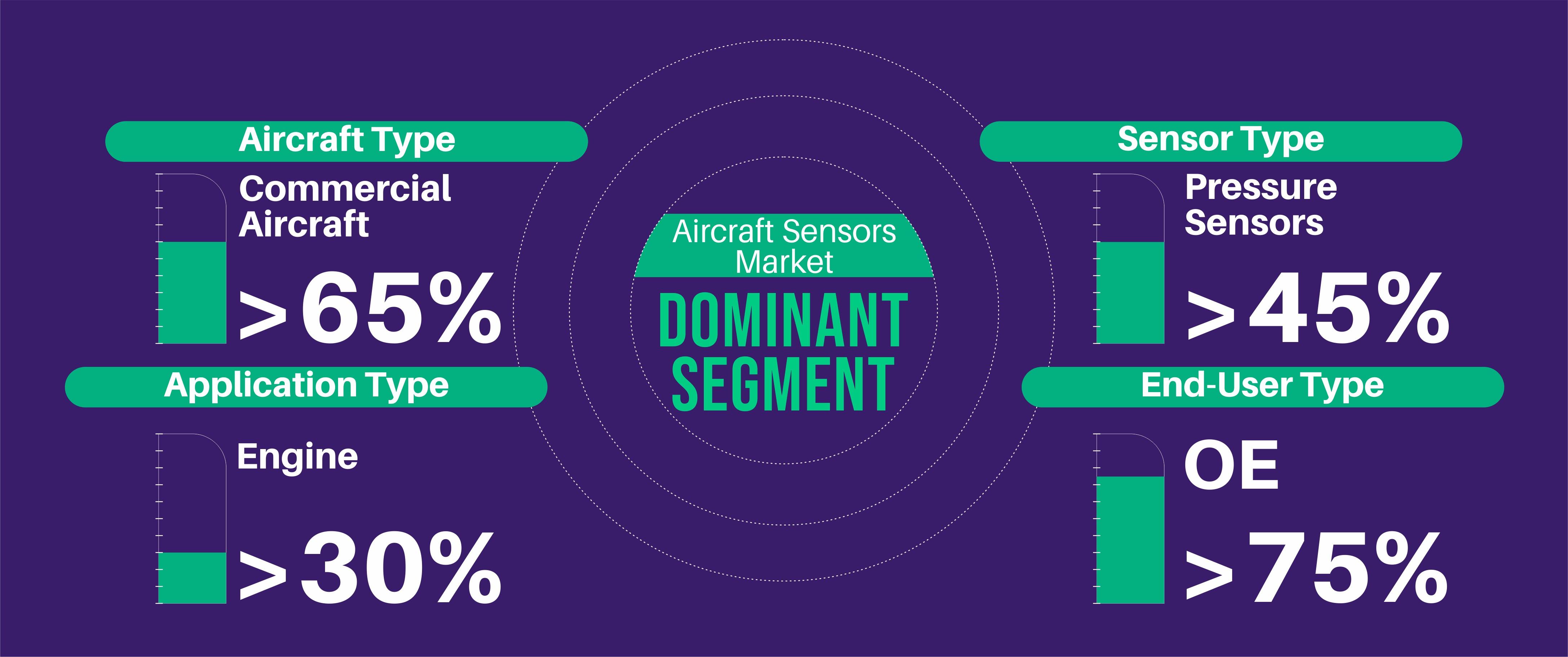Aircraft Sensors Market: Analyzing the Key Growth Drivers

The global aircraft sensors market is experiencing significant growth, driven by rapid advancements in aviation technology, increased demand for air travel, and the rising emphasis on safety and efficiency in modern aircraft. Sensors play a crucial role in monitoring and controlling various functions in an aircraft, including navigation, flight control, engine performance, and environmental conditions. As the aviation industry continues to evolve, the demand for advanced sensors is expected to grow steadily. This article delves into the key drivers propelling the expansion of the aircraft sensors market.
According to Stratview Research, the aircraft sensors market was estimated at USD 1.1 billion in 2022 and is likely to grow at a CAGR of 10.5% during 2023-2028 to reach USD 2.2 billion in 2028.
1. Increasing Demand for Next-Generation Aircraft
One of the primary growth drivers for the aircraft sensors market is the rising demand for next-generation, fuel-efficient, and technologically advanced aircraft. Airlines are looking to upgrade their fleets to improve performance, reduce operational costs, and meet stringent environmental regulations. These modern aircraft require highly sophisticated sensors to ensure optimal performance, real-time monitoring, and improved fuel efficiency. As manufacturers like Boeing and Airbus continue to innovate with cutting-edge aircraft designs, the need for advanced sensors to support these systems grows in parallel.
2. Focus on Safety and Regulatory Compliance
Safety is a top priority in the aviation industry, and regulations are becoming increasingly stringent. Aircraft sensors are critical for ensuring flight safety by providing accurate data for monitoring critical systems like engine performance, altitude, speed, and weather conditions. Regulatory bodies, such as the Federal Aviation Administration (FAA) and the European Union Aviation Safety Agency (EASA), have implemented strict safety standards that mandate the use of advanced sensor systems in aircraft. This focus on safety and regulatory compliance is driving the adoption of more advanced and reliable sensor technologies.
3. Growth of the Commercial Aviation Sector
The global commercial aviation sector is expanding rapidly, with increasing air travel demand, particularly in emerging markets such as Asia-Pacific and the Middle East. As airlines expand their fleets to accommodate this growth, the need for sensors to monitor and control various aircraft functions increases. Sensors are used in critical systems such as fuel management, avionics, and flight control, making them essential components in the operation of modern commercial aircraft. The growing commercial aviation market is, therefore, a significant driver for the aircraft sensors industry.
4. Technological Advancements in Sensors
The development of next-generation sensor technologies, such as wireless sensors, micro-electromechanical systems (MEMS), and optical sensors, is another key driver of market growth. These sensors offer enhanced precision, reliability, and durability, making them ideal for harsh environments encountered during flight. Additionally, innovations in sensor miniaturization and integration are enabling aircraft manufacturers to incorporate more sensors into their designs without adding significant weight, improving overall aircraft performance and efficiency.
Conclusion
The aircraft sensors market is poised for continued growth, fueled by increasing demand for next-generation aircraft, stringent safety regulations, expanding commercial aviation, and advancements in sensor technology. As the aviation industry evolves, the role of sensors in enhancing safety, performance, and efficiency will only become more critical, driving further innovations and market expansion.
- Questions and Answers
- Opinion
- Story/Motivational/Inspiring
- Technology
- Art
- Causes
- Crafts
- Dance
- Drinks
- Film/Movie
- Fitness
- Food
- Juegos
- Gardening
- Health
- Home
- Literature
- Music
- Networking
- Other
- Party
- Religion
- Shopping
- Sports
- Theater
- Wellness
- News
- Culture
- War machines and policy

